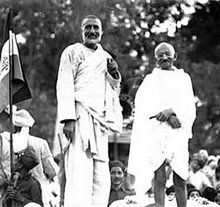The Qur'an offers an intriguing version of a story that also appears in the book "Genesis," where the two sons of Adam are identified as Cain and Abel. The Qur'an places a remarkable speech on the lips of Abel that is absent from the Biblical version. Interpolating a few details from the Genesis version into the Qur'anic version (to supply details the Qur'an may assume its audience already possesses), Cain threatens to kill Abel after learning that his brother's sacrifice was accepted and his [Cain's] was rejected. Abel, in the Qur'anic narration, replies:
"God accepts [sacrifice] from those who are careful to obey [God]; [therefore] if you raise your hand to strike me dead, I will not raise my hand against you to kill you; for I fear the God of the Worlds" [my translation of Qur'an 5: 27-28].
Obedience to God is here presented as a willingness to submit to oppression--Abel suggests that his submission will have the effect of guaranteeing that Cain will be numbered among the "oppressors" whose fate is hell-fire (5: 29)--even if the price of such submission is one's life.
This speech is quickly followed by an allusion to Rabbinic materials which tends to shift attention away from the remarkable nature of Abel's militantly pacifist stance--a shift in attention that ought not to diminish the impact of the Qur'anic argument that the verbal threat which preceded the "first murder" evoked not violence (pre-emptive or counter) but an assertion that obedience to God in such a situation requires restraint.
Subscribe to:
Post Comments (Atom)



No comments:
Post a Comment